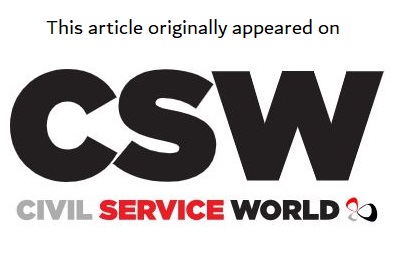After one of its own units recorded a breach of the guidelines, the department is undertaking activities to build awareness and adherence to the rules, according to new permanent secretary
The Cabinet Office is working with departments to improve compliance with spending controls following a breach by one of its own units, the department’s leader has confirmed.
The department has taken action after the Government Property Agency broke the rules in a 2022-23 tender evaluation, Cat Little said. The GPA engaged with would-be suppliers to agree the final allocation of contracts before obtaining approval from the Cabinet Office commercial control team, which the National Audit Office found amounted to a failure to comply with spending control protocols.
Little, who took over as Cabinet Office permanent secretary this month, answered a series of questions on the breach in a letter to MPs on the Public Administration and Constitutional Affairs Committee, published last week.
The missive revealed that there were 11 breaches in 2023-34 that required retrospective approvals.
“For each we worked together with the departments to identify and understand why this occurred, how judgement was applied; and agreed and implemented an improvement plan to address the root cause,” she said.
The Cabinet Office then continues to engage and monitor with these departments to ensure controls are “understood, applied and tightened where required”, she added.
Breaches of the spending controls and requests for retrospective approvals “are often linked to poor awareness of controls”, according to Little.
She said the central controls team is undertaking wider work to improve compliance across government by conducting more awareness-raising activities and refreshing guidance. This include “pipeline reviews and teach-ins”.
Related content
- All cryptography investments to be covered by government tech spend controls
- Home Office and BEIS first departments under the microscope in pilots of new independent cyber audits
- Cabinet Office ditches consultancy and professional services spend controls
Little was asked by the committee if she thinks the Cabinet Office is adequately ensuring compliance with commercial spending controls across government, given it failed to do so for its own executive agency, and what steps it is taking to prevent further non-compliance. She said the Cabinet Office has been working with the GPA to improve its adherence to the controls.
“We have a number of ways of ensuring compliance with spending controls to reduce the amount of retrospectives that occur,” she said. “We worked closely with GPA to formulate and implement a plan of action to improve compliance, and reiterated that Cabinet Office approvals need to be factored into their timelines. The improvement plan included activities such as running improvement workshops; increased scrutiny over a 12 month period; and whilst also working closely with HMT, who withhold their own approval of business cases, (and subsequent the release of funding), until the spending control and other applicable controls have been achieved.”
Since they were introduced in 2010, the spend controls have been a key means of enabling the centre of government – initially the Government Digital Service and, latterly, the Central Digital and Data Office – to regulate departments’ spending on technology and digital projects. Version 6 of the dedicated digital and tech guidelines was published earlier this year, and marked one of the most significant updates made to the controls during their 14 years in operation. The latest amendments ask agencies to adhere a wider range of rules – including “no automatic contract extensions” – but, in return, offer the chance to be granted “earned autonomy”.
Asked by then-PACAC chair William Wragg how an executive agency of the Cabinet Office was able to breach spending controls set by its own parent department, Little said the Cabinet Office Commercial Control team had “deemed the engagement to constitute an implied award (as the bidders were informed of the evaluation outcome as part of the engagement) and therefore a breach of the control”.
Following the breach, “the GPA team have established closer working relationships with the Cabinet Office Commercial Control team and the Facilities Management Control team in order to ensure the requirements of the control are better understood and fully adhered to going forward”, added the letter, which was sent on 11 April.





